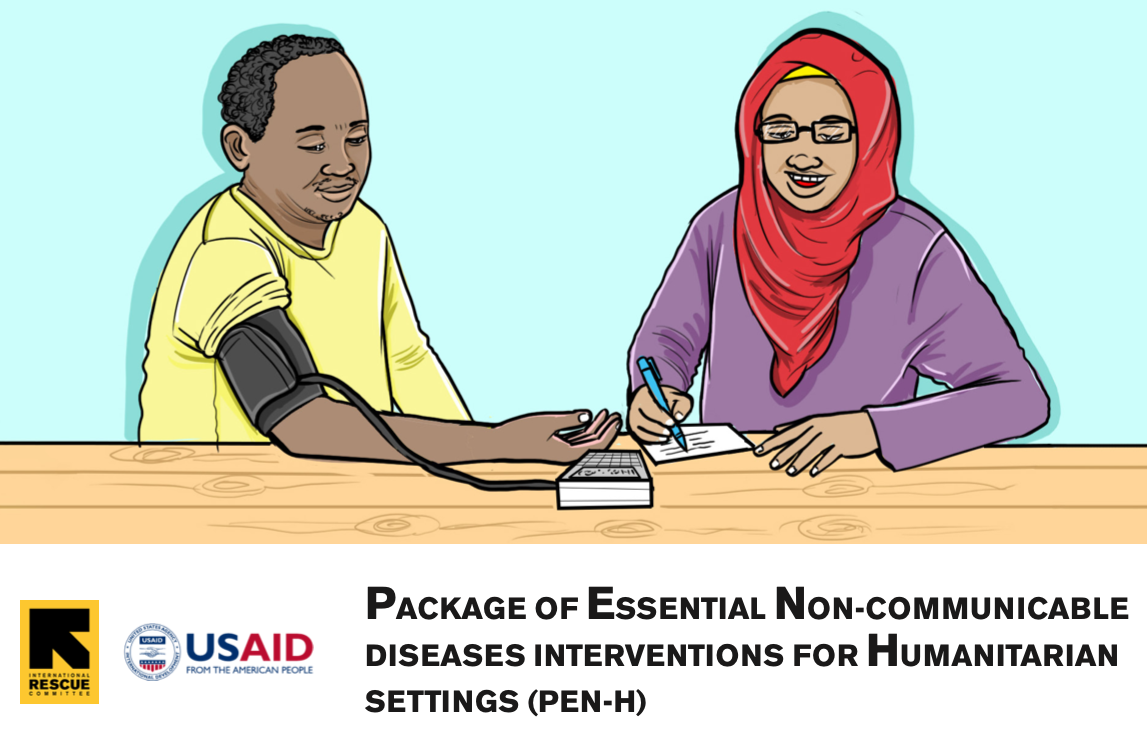A Special Event organized by The Geneva Learning Foundation with the participation of the International Rescue Committee (IRC)
Noncommunicable Diseases (NCDs) in humanitarian settings
00
DAYS
00
HOURS
00
MINS
00
SECS
Why discuss NCDs during the COVID-19 pandemic?
COVID-19 will disproportionately affect the most vulnerable and hit countries with weak health systems the hardest.
- The shock wave will disrupt routine health services everywhere, but even more so in fragile contexts, leaving patients with noncommunicable diseases without access to their medications and disrupt ongoing care, at the very least.
- The World Health Organization (WHO) is urging countries to improve efforts to contain the disease and protect health care workers, and notes that a solution calls for “aggressive preparedness,” all around the world.
At The Geneva Learning Foundation, we believe this preparedness needs to include Noncommunicable diseases (NCDs).
However, unlike infectious disease control, guidance is currently very limited for NCDs in humanitarian settings.
Learn about the IRC’s new PEN-H tool to support NCD interventions in humanitarian settings

Laura Miller
Laura Miller is a Primary Health Care (PHC) Technical Advisor for the International Rescue Committee (IRC). She supports the technical design, monitoring and evaluation of IRC primary and reproductive health programs in conflict affected and refugee hosting countries. She has supported primary health care projects in Bangladesh, Liberia, Libya, Myanmar, Serbia, Sierra Leone, South Sudan, Syria, Thailand, and Zimbabwe. She is a graduate of the program on Forced Migration and Health at Mailman School of Public Health, Columbia University.

Dr Shanthi Mendis
Shanthi Mendis is the principal author of IRC's Package of Essential Non-Communicable Diseases Interventions for Humanitarian Settings (PEN-H) and a Co-Founder of The Geneva Learning Foundation. A Fellow of the Royal College of Physicians of London and Edinburgh and of the American College of Cardiology, she is an expert in Global Health and was former Senior Adviser/Director, Prevention and Management of Noncommunicable Diseases in the World Health Organization (WHO), Geneva, Switzerland. For nearly two decades she led WHO’s technical support and innovative training initiatives in low and middle income countries and contributed to moving the global agenda forward in noncommunicable diseases.
Noncommunicable diseases are the leading causes of death and disability worldwide, including in low- and middle-income countries.
The world is facing increasing numbers of humanitarian emergencies with health consequences from a range of crises, including natural disasters, conflicts, chemical or radio-nuclear spills and infectious disease outbreaks.
- Many settings are complex, with more than one cause.
- In these settings, the infrastructure, supplies and the health workforce is often weakened, increasing the challenges of delivering good-quality care.
- Not only is there a primary surge in health demand to respond to the initial emergency, but if the emergency is protracted there is often a secondary surge of demand in the following months or years.
Are humanitarian settings associated with higher NCD morbidity and mortality?
- Studies show that humanitarian settings are associated with increased NCD morbidity and mortality that may persist for years following the onset of a crises.
- In the aftermath of a crises, people living with an NCD are particularly vulnerable to exacerbations of their condition.
Do you know the factors that contribute to this vulnerability?
Introducing the Package of Essential Non-Communicable Diseases Interventions for Humanitarian Settings (PEN-H)
Due to their growing prevalence, Noncommunicable Diseases (NCDs) have become a major public health threat in humanitarian settings around the world. This package provides health workers with guidance, to facilitate the delivery of quality NCD care in these situations. When national guidance is notavailable, PEN-H may be adapted to suit national contexts. The package could also complement national guidance for the management of NCDs in humanitarian settings.

This Special Event will introduce the package and explain its intended use.
About the International Rescue Committee (IRC)
The IRC helps people whose lives and livelihoods are shattered by conflict and disaster to survive, recover, and regain control of their future.
The IRC aims to lead efforts to improve access to quality, high impact treatment and health promotion services for people affected by non-communicable diseases in humanitarian settings.
The IRC advocates for investment in NCD service integration across primary healthcare in all humanitarian settings while contributing to the evidence base for effective interventions.

About The Geneva Learning Foundation
The Geneva Learning Foundation is a Swiss non-profit with the mission to develop trial, and scale up new ways to lead change to tackle the challenges that threaten our societies.
We organize Special Events on key areas of concern for humanitarian, development, and global health work.
Each Event is fully digital, with no travel required and no upper limit to the number of participants.
Events are free for individuals. There is no cost for either registration or participation.


